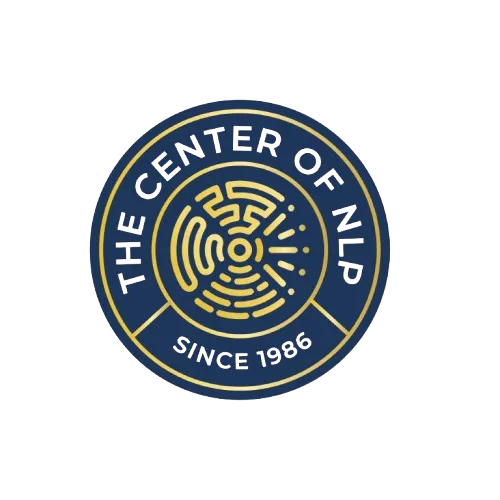
The Importance of Neuro-Linguistic Programming in Public Speaking
Neuro-Linguistic Programming (NLP) is a psychological approach that explores the relationship between our thoughts (neuro), language (linguistic), and behaviors (programming). It has gained significant attention in the field of public speaking due to its effectiveness in enhancing communication skills, building rapport, and influencing others positively. Here are some key reasons why NLP is important in public speaking:
Enhancing communication skills: NLP provides a wide array of tools and techniques to help public speakers improve their communication skills. For instance, NLP teaches the effective use of language patterns, which involve using specific language structures and patterns to convey messages more persuasively. These language patterns can help speakers emphasize important points, create visualizations, and engage the audience at a deeper level. NLP also focuses on non-verbal communication, including body language, tone of voice, and facial expressions, helping speakers use these elements effectively to enhance their overall message delivery.
Building rapport with the audience: Building rapport is a crucial aspect of public speaking, as it helps create a connection with the audience. NLP techniques such as matching and mirroring can be used to build rapport by subtly mimicking the audience's body language, tonality, and language patterns. This creates a sense of familiarity and similarity, establishing trust and rapport with the audience. By building rapport, speakers can create a more receptive audience that is more likely to engage with the message being delivered.
Managing emotions and state: Emotions play a significant role in public speaking, and NLP offers techniques to manage them effectively. For instance, the technique of anchoring involves associating a specific trigger, such as a touch or a word, with a desired emotional state, such as confidence or calmness. This allows the speaker to anchor and access the desired emotional state during their presentation, helping them manage nerves, anxiety, or other emotions that may arise. Managing emotions and states through NLP techniques can lead to a more composed and confident delivery, enhancing the overall impact of the speech.
Influencing and persuading effectively: NLP offers powerful techniques for persuasive communication, which can be highly beneficial in public speaking. For instance, the use of embedded commands involves subtly embedding commands or suggestions within the speech, influencing the audience's subconscious mind. NLP also includes techniques such as reframing, which involves changing the meaning or perspective of a situation and utilizing language patterns that can effectively influence and persuade the audience. By understanding the audience's thought processes and utilizing NLP techniques, speakers can structure their message in a way that resonates with the audience, leading to better persuasion and influence.
Improving mindset and belief systems: NLP focuses on the role of thoughts and beliefs in shaping behavior, which can be invaluable for public speakers. NLP techniques can help identify and transform limiting beliefs or negative thought patterns that may hinder a speaker's performance. By working on developing a positive and empowering mindset, speakers can enhance their confidence, self-esteem, and overall effectiveness in public speaking. This can lead to improved self-belief, better self-expression, and more impactful delivery of the speech.
In summary, Neuro-Linguistic Programming (NLP) provides a range of techniques that can significantly enhance public speaking skills. From improving communication skills, building rapport, managing emotions and state, influencing and persuading effectively, to improving mindset and belief systems, NLP can play a pivotal role in helping speakers deliver powerful, engaging, and influential presentations.
Understanding the Importance of NLP in Public Speaking
To become a successful public speaker, it's crucial to understand the importance of Neuro-Linguistic Programming (NLP) techniques. NLP helps speakers to connect with their audience on a deeper level by using effective communication skills, which can be learned through NLP practitioner training. By utilizing NLP techniques, speakers can improve their communication skills and develop confidence, ultimately resulting in a more captivating and persuasive presentation. Through NLP, speakers can learn to identify their audience's communication style and tailor their approach accordingly, leading to a more effective and engaging speech. Whether you're dealing with public speaking anxiety or simply looking to improve your skills, NLP can help you to become a more confident and effective public speaker. By investing in NLP training and incorporating NLP techniques into your public speaking practice, you can take your skills to the next level and deliver presentations that truly resonate with your audience.
NLP Techniques to Improve Communication Skills
NLP techniques can significantly improve the communication skills of public speakers. As an NLP practitioner, it's essential to know how to use these techniques to communicate effectively. Here are some NLP techniques to enhance your public speaking skills:
Anchoring: Associate positive emotions with a specific gesture or object, then use it during the speech to anchor the emotions.
Rapport building: Build a connection with the audience using body language, tone, and pacing.
Reframing: Change the way you or your audience perceives a particular situation to create a positive outcome.
Sensory acuity: Develop an awareness of the audience's responses, such as their facial expressions, tone, and gestures.
Meta-model: Use this technique to clarify and elicit information from the audience, leading to better understanding and rapport.
Using these NLP techniques can improve your communication skills, help you connect with your audience, and deliver an impactful speech. As a result, NLP training can be a game-changer for public speakers, leading to more successful engagements and better outcomes.
LEARN MORE: https://www.centerofnlp.com/introtonlp
Building Confidence with NLP
Building Confidence with NLP is essential for becoming an effective public speaker. As an NLP Practitioner, you can use communication training techniques to overcome nervousness and anxiety. With Public Speaking Tips and NLP strategies, you can develop self-belief, remain calm, and project confidence on stage.
By training yourself to use powerful language patterns, you can create a persuasive message that resonates with your audience. NLP helps you control your non-verbal cues, allowing you to appear relaxed and in control. By using these techniques, you can connect with your audience, build rapport, and establish trust.
Confidence is key in public speaking, and NLP is a powerful tool for developing it. With the right mindset and training, you can deliver a presentation that leaves a lasting impact on your listeners.
Using NLP for Effective Persuasion
Effective persuasion is an essential skill for public speakers. By using NLP techniques, NLP Practitioners can learn to communicate with greater influence and impact. NLP provides a range of powerful tools for enhancing communication training, such as building rapport and understanding nonverbal cues and language patterns.
By mastering these techniques, NLP Practitioners can better connect with their audience, build trust and influence their behavior. They can also use NLP to craft persuasive messages that resonate with their audience's values, beliefs, and desires.
Effective persuasion is crucial in delivering public speaking tips that can inspire action and change. With NLP, public speakers can create a compelling narrative that captures their audience's attention and inspires them to take action. Whether it's selling an idea, motivating a team, or inspiring a crowd, NLP can help public speakers communicate with greater impact and achieve their goals.
Captivating Your Audience with NLP
If you want to deliver a memorable speech, you need to know how to captivate your audience. With the help of Neuro-Linguistic Programming (NLP), a powerful communication training technique, you can learn how to engage and inspire your listeners. As an NLP practitioner, you can use a variety of techniques to create a powerful presence on stage, such as anchoring positive emotions, pacing and leading, and using sensory language.
By using these techniques, you can build rapport with your audience and establish yourself as a confident and authoritative speaker. With effective communication training and the power of NLP, you can easily capture your audience's attention and keep them engaged throughout your entire presentation. By implementing NLP techniques in your public speaking practice, you can become a more effective and persuasive communicator, leaving a lasting impact on your audience.
Overcoming Public Speaking Anxiety with NLP
Public speaking anxiety is a common fear, but it can be overcome with the help of Neuro-Linguistic Programming (NLP) techniques. As an NLP practitioner, you can learn how to use communication training to reduce anxiety and build confidence. NLP offers powerful tools to help you overcome fear and negative self-talk, allowing you to connect with your audience and deliver your message effectively.
With the right public speaking tips, you can use NLP to manage anxiety, control your thoughts and emotions, and stay present in the moment. By training in NLP, you can become a more effective public speaker and master the art of communication. Whether you're an experienced speaker or just starting, NLP can help you improve your skills and achieve your goals. So why not explore the world of NLP and discover how it can transform your public speaking?
Integrating NLP into Your Public Speaking Practice
Integrating NLP into your Public Speaking Practice can elevate your skills to the next level. As a Public Speaking Tips, NLP Practitioner, and Communication Training technique, NLP offers a wide range of tools to help you communicate more effectively. By integrating NLP techniques into your public speaking practice, you can improve your ability to connect with your audience and deliver more powerful presentations.
From building confidence to using persuasive language, NLP can help you become a more dynamic and engaging speaker. By using NLP techniques like anchoring, reframing, and rapport-building, you can create a more positive and productive speaking environment. If you want to take your public speaking skills to the next level, consider integrating NLP into your practice today.
NLP as a Powerful Tool for Public Speakers
Neuro-Linguistic Programming (NLP) is a powerful tool for public speakers seeking to enhance their skills. By training with an NLP Practitioner and utilizing NLP techniques, individuals can improve their communication skills and deliver effective public speeches. Public speaking tips coupled with NLP training can also help build confidence, overcome anxiety, and captivate audiences.
Whether it's in a professional or personal setting, NLP provides valuable communication training for public speakers. By learning to use NLP for effective persuasion, speakers can also make a lasting impact on their listeners. Overall, NLP serves as a key ingredient in the recipe for successful public speaking. With the right training and practice, public speakers can use NLP techniques to master the art of communication and leave a lasting impression on their audiences.
Check Out For more:

